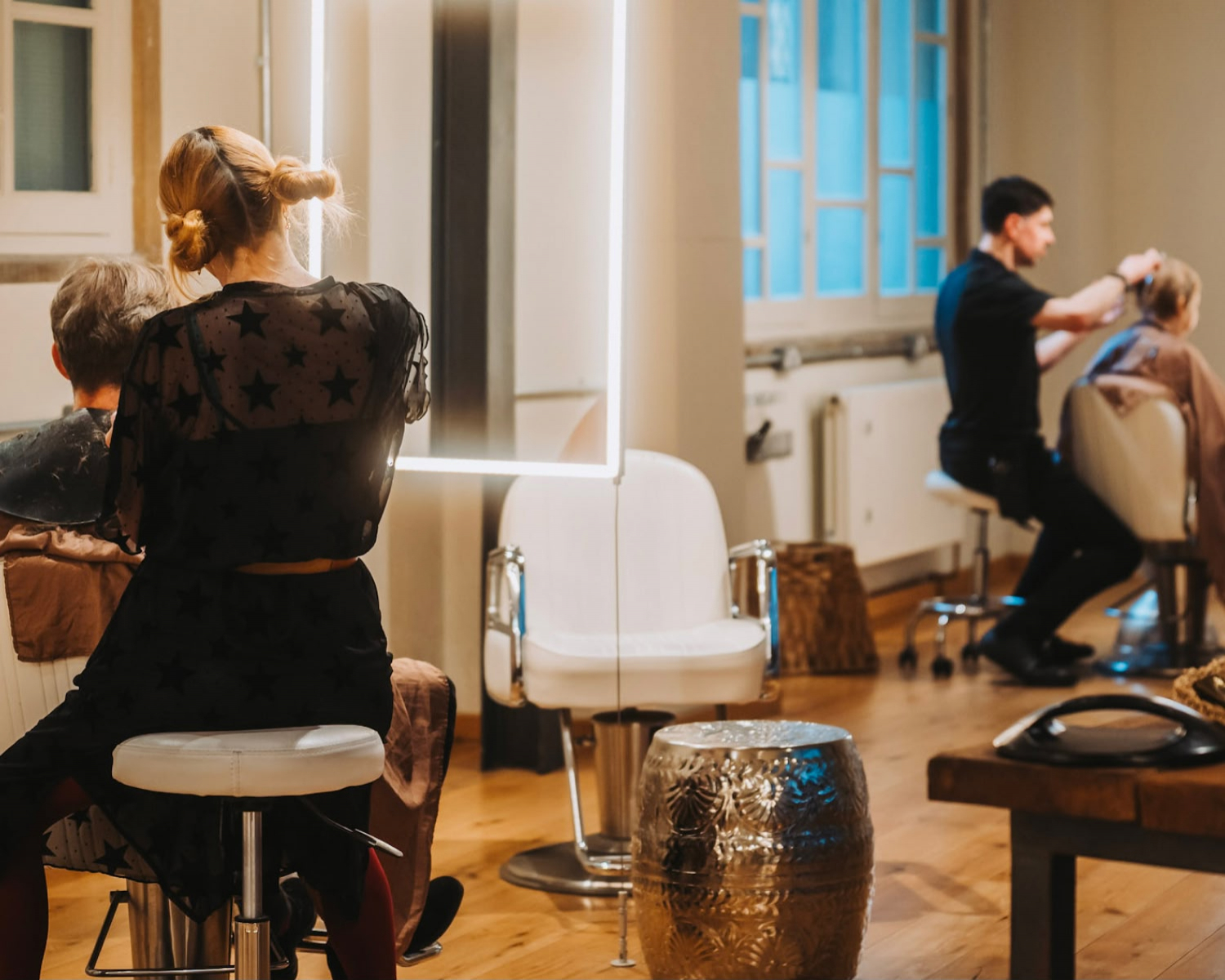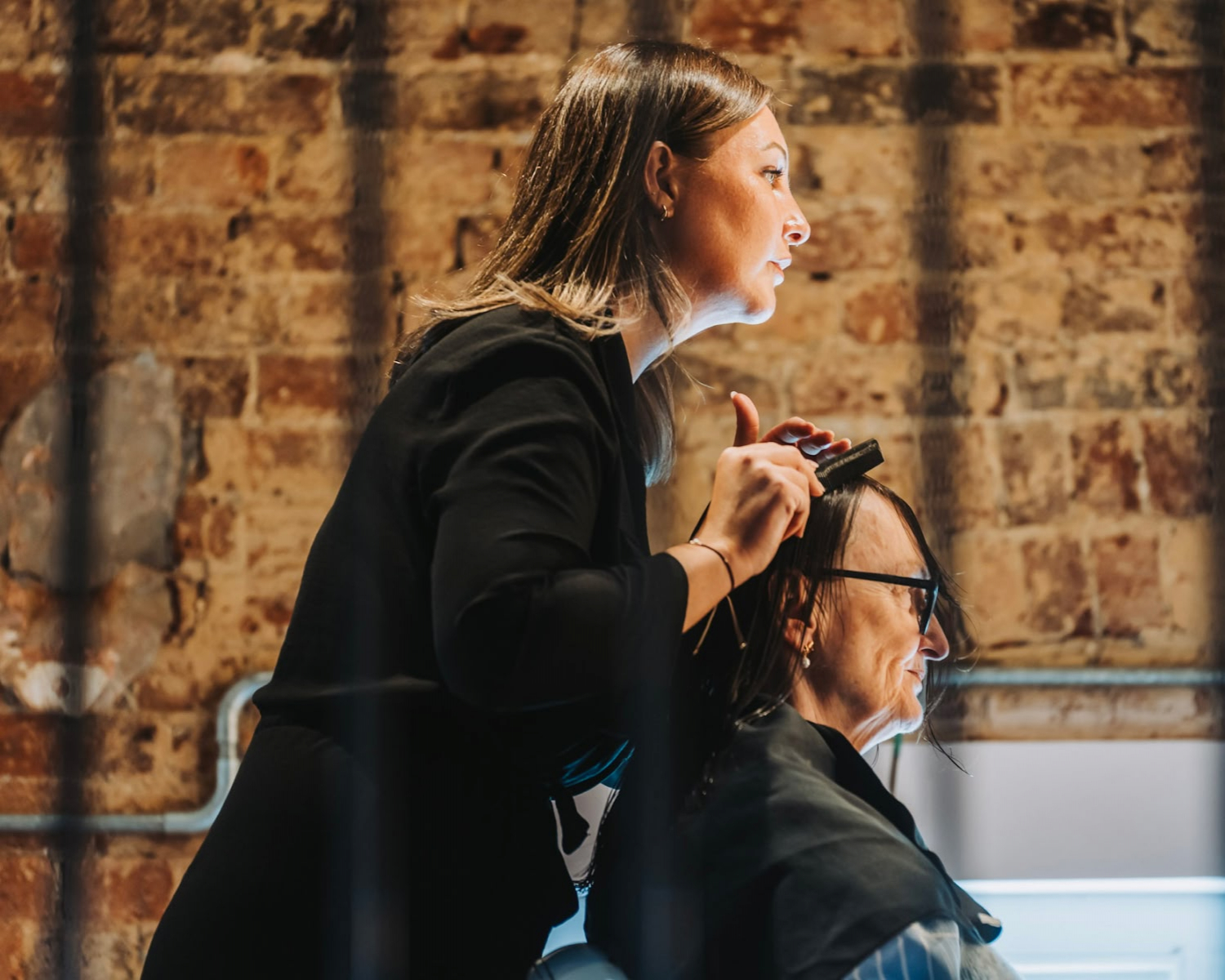
Understanding Hair Loss
For many of us, our hair feels like part of our identity, so noticing it thinning or falling out can be worrying. The truth is, hair loss is incredibly common and, in most cases, it's a symptom of something else happening in the body rather than the root problem itself. At The Chapel, we often speak with Guests who share their concerns about hair loss, and our approach is always centred around understanding, listening, and helping you explore possible causes and solutions.
In this guide, we'll look at the most common reasons behind hair loss, some myths you can safely ignore, and ways to support your hair's health — from everyday care to seeking professional advice.
Causes of Hair Loss
Hair loss can happen for many different reasons, and understanding what's going on is the first step to finding a solution. We'll always ask our Guests if they've noticed any lifestyle or health changes, because more often than not, hair loss is linked to what's happening inside the body.
Temporary vs Permanent Loss
If you're noticing extra hairs in your brush or thinning at your roots, don't panic — not all hair loss is permanent. Temporary shedding is really common and can happen after stress, illness, hormonal changes, nutrient deficiencies, or even as the seasons change. The good news is that in many cases, the hair grows back once the cause is addressed.
Permanent hair loss is a bit different. Alopecia is the general term for any kind of hair loss, but male and female pattern baldness (known medically as androgenetic alopecia) is the most common long-term type. It's usually linked to a combination of genetics and hormones — in women, it often shows as a widening part or thinning around the hairline, while in men, it tends to affect the crown or temples.
Knowing which kind you're dealing with makes a huge difference when it comes to choosing the right treatment or support.
Health and Nutrition
Low levels of vitamins D and B12, iron, and thyroid imbalances are all well-known triggers for hair thinning. A GP can run a blood panel test to check your levels. Even if results come back as 'normal', being at the lower end of the range can still impact your hair. With this, supplements often work quickly to help restore balance.
Hormones
Hormonal changes are another common cause. For women under 43, imbalances are easier for a GP to detect, while menopause often brings thinning, especially around the hairline. This can be distressing because the front of our hair is so visible, but you're not alone. Both medical and lifestyle routes can support you through it.
Stress
Never underestimate the role of stress. Our bodies prioritise vital organs, so hair and skin often show the first signs when something's wrong. Stress-related shedding is more common than you might think, but the silver lining is that it's usually reversible once the stress eases.
Diet
Being low in protein, following a restrictive diet, or experiencing rapid weight loss can all contribute to hair loss. These are usually temporary issues, and the hair often recovers once your body stabilises.
Myths About Hair Loss
With so much information online, it's easy to come across misleading advice. Here are a few myths we often hear:
- Washing your hair too often causes hair loss — in our experience, frequent washing doesn't trigger shedding.
- Wearing hats makes hair fall out — this isn't true. Hats won't harm your follicles.
- All hair loss is permanent — in many cases, hair loss is temporary and responds well to lifestyle, nutrition, and care changes.
- Hair loss is the same as breakage — hair loss is when strands shed from the root, while breakage comes from over-processing, heat damage, or tight hairstyles.
Understanding the difference between fact and fiction helps reduce unnecessary worry and focus on what really matters.
Hair Loss Solutions and Support
The right solution depends on the cause of your hair loss, but there are plenty of routes to explore.
Medical Support
Start with your GP. Ask for a blood test and keep a copy of your results — it helps track patterns over time and spot if you're on the lower end of 'normal'. You might also be referred to a dermatologist, who can offer medical guidance, or a trichologist, who specialises in scalp and hair health.
Nutrition and Supplements
Boosting protein intake, ensuring you're getting enough vitamin D (especially in winter), and considering supplements like collagen or biotin can all make a difference. But the foundation should always be a healthy, balanced diet tailored to your body's needs.
Haircare Routines
Protecting your hair externally is just as important as looking after your body internally. We recommend:
- Using a heat protector before styling, especially on fine hair.
- Trying volumising or thickening products to give hair more body.
- Being gentle with heat tools and avoiding over-processing with colour or bleach.
- Giving new products or supplements at least three months before judging results.
Products like Keune's Ultimate Blow Out, Velvet Cloud, Cashmere Cloud and Thick Trick are favourites for adding volume and shine without weighing hair down. Perfect for Guests with thinning or fine hair.
Styling Solutions
Sometimes, it's not about stopping hair loss but finding ways to work with it. Clever cuts, fringes, and shaping around the face can disguise thinning areas beautifully. For Guests with more advanced loss, options like hair replacement systems or even transplants are worth discussing.
Mind-Body Connection
Stress management and self-care play a huge role in both prevention and recovery. Practices that calm the nervous system, whether that's mindfulness, yoga, or simply taking time for yourself, can make a visible difference to your hair.

Our Approach
At The Chapel, we always say, Never be afraid to ask. We're here to listen, guide, and share our knowledge openly. If we notice any changes in your scalp or hair health, we'll always let you know, because sometimes these early signs are the body's way of asking for attention.
Hair health starts from within, but the right care and styling can help you feel confident every day. Whether it's trying a new product, exploring supplements, or simply talking through your concerns, we're here to support you on your journey.
We also love introducing our Guests to hybrid products that care for both scalp and hair, like Keune's Long & Strong collection. Expertly formulated with Centella Asiatica, Marine Density Infusion, and Biomimetic Peptides, this range is designed to nourish the scalp, fortify strands, and support natural hair growth. Its advanced formula helps reduce breakage and improve density for visibly fuller, healthier hair, with a complete line-up including Shampoo, Conditioner, and Serums.
Caring for Your Hair Inside and Out
Caring for your hair is about more than products and treatments — it's about understanding the bigger picture of your health, lifestyle, and wellbeing. If you're worried about hair loss or simply want to learn more about your options, we're here to listen and guide you. Book an appointment with us and let's start the conversation together.



